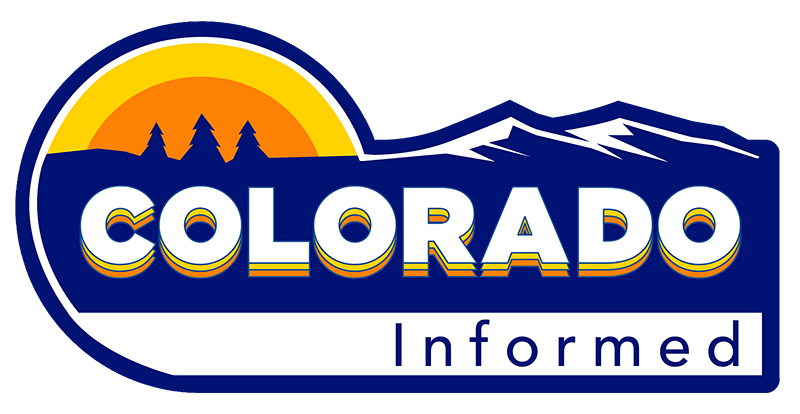WILDFIRE THOUGHT LEADERS
Data-led Decision-Making for Wildfire Restoration
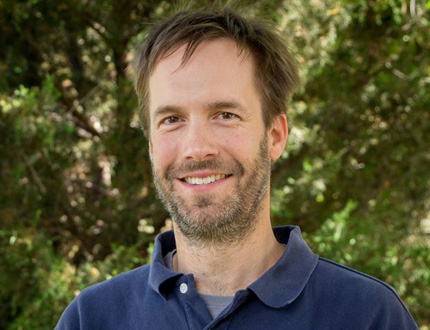
Director of Forest and Fire Program, The Nature Conservancy in Colorado
Rob Addington is the Director of the Forest and Fire Program with The Nature Conservancy in Colorado. He and his team are focused on increasing the pace and scale of forest restoration in Colorado to reduce hazardous fuels and promote landscape resilience to natural disturbances such as wildfire as well as climate change. Much of this work is completed in partnership with agencies such as the U.S. Forest Service, the Colorado State Forest Service, and other non-governmental organizations.
Over his 15+ year career, he has published dozens of data and science-backed papers on fire management and forest restoration.
Below are a few of the most recent articles he co-authored:
Reduced fire severity offers near-term buffer to climate-driven declines in conifer resilience across the western United States
Using observations from over 10,000 sites, this study compared the relative importance of differences in fire-caused tree mortality, which limits seeds available for tree regeneration, to the impacts of warm, dry climate conditions in determining postfire conifer regeneration. The work highlights the next few decades as a window of opportunity over which management could minimize the likelihood of fire-caused forest loss.
Read more here.
Identifying opportunities for the use of broadcast prescribed fire on Colorado’s Front Range.
The article discusses the use of broadcast prescribed fire as an effective and low-cost management tool for achieving fuel reduction at scale, especially in the Colorado Front Range, which has experienced numerous large, high-severity fires in recent decades. The authors present the results of a multi-criteria suitability analysis that identifies opportunities and constraints for the use of broadcast prescribed fire based on spatial factors, including wildfire hazard, vegetation and fuel types, historical fire regimes, and wildland-urban interface development. Within their analysis area, over 228,000 ha (approximately 13%) were classified as highly suitable for broadcast prescribed fire, with opportunities for large-scale projects distributed throughout the Front Range. The results of this analysis can be used to develop comprehensive fuels reduction and forest restoration strategies that incorporate the use of prescribed fire, including identifying where mechanical treatments could be applied to facilitate the use of broadcast prescribed fire over large extents, as well as where prescribed fire may be a viable option for long-term maintenance of treatments.
Read more here.
Prioritizing fuels reduction for water supply protection
This paper indicates that wildfire risk to water supplies can be substantially reduced by treating a small portion of the watersheds that have dense, fire-prone forests on steep slopes that drain to water supply infrastructure. Risk is quantified as the expected sediment impact costs to water supplies by combining measures of fire likelihood and behavior, erosion, sediment transport and water supply vulnerability. They demonstrate the model’s utility for prioritizing fuel treatments in two large watersheds in Colorado that are critical for municipal water supply.
Learn more here.
You can learn more about Rob and connect with him here or listen to his latest podcast here.
Bridging the gap between research and implementation
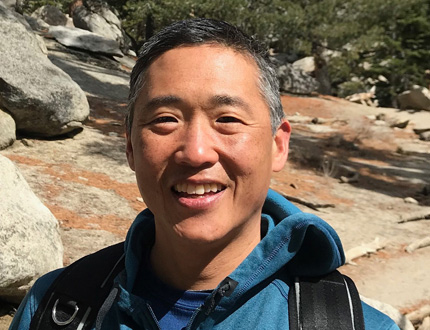
Director,
Colorado Forest Restoration Institute
Tony Cheng is a professor in the Department of Forest & Rangeland Stewardship at and is Director of the Colorado Forest Restoration Institute at Colorado State University. In his capacity as director of CFRI, Tony oversees programs to develop, compile, and apply current knowledge through collaborative, adaptive management approaches to achieve forest restoration and wildfire hazard reduction goals. “We collaborate with dozens of partners across forestry and wildfire research, management, and policy to support planning, prioritization, monitoring, and adaptive management. CFRI works across ownership boundaries, spatial scales, and decision-making levels to strategically target outcomes-based investments that enhance forest resilience and reduce wildfire risk across forest landscapes.
Learn more about Tony and his work here.
From Urgency to Action:
A Personal Account Fuels Change in Wildfire Preparedness
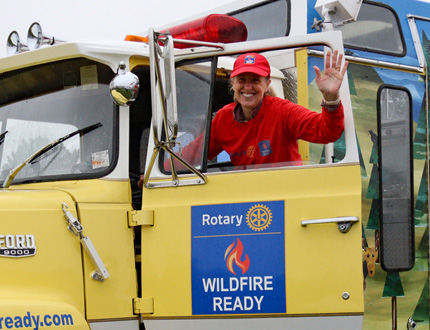
Chair, Rotary Wildfire Ready
Recent wins include:
• We converted a 1979 Fire truck into a rolling educational lab in 2020, and over 9,000 people
have taken 15 minute tours.
• Our 7 digital brochures we launched in 2021 have had 485,545 views and we handed out
36,000 printed brochures last year.
• Our team has partnered with CoreElectric to get four Pano AI cameras installed in our area.
• We launched our Rotary Wildfire Educational App this summer.
Cindy Latham is a seasoned marketing executive with a remarkable track record in global marketing, sales, and product leadership. With over 30 years of experience, Cindy has consistently driven profitability and spearheaded innovative initiatives. Her achievements were duly recognized when she was awarded the prestigious CMO of the Year title by the Phoenix Business Journal in 2017 for her outstanding work at Plexus Worldwide. Over the next five years, significant events inspired a serious shift in her focus towards protecting lives and communities in the face of wildfires.
After relocating to Evergreen, Colorado, Cindy quickly started volunteering with the Rotary Club of Evergreen and discovered the pressing need for wildfire-related information. In response, she founded the Rotary Wildfire Ready organization in 2019. As the Chairperson of the Rotary Wildfire Ready Project and the Leader of the Rotary Wildfire Ready Education Committee, Cindy assembled a dedicated team consisting of Rotarians, community leaders, and members of the Fire Department. Together, they have been actively involved in enhancing community preparedness for wildfires in Colorado.
On December 30, 2021, she received an emergency alert on her phone. She looked online and noticed the fire’s proximity to her sister who resided in Boulder County. As the fire rapidly intensified, Cindy immediately recognized the imminent danger and urgently commanded her sister to evacuate. Her sister resisted, stating that she had not received an official evacuation alert. Despite Cindy’s repeated pleas, emphasizing the severity of the situation and the potential threat to their lives, her sister remained hesitant. The situation grew increasingly dire as the Marshall Fire, fueled by 110-mile-per-hour winds, continued to spread. It was only when a county sheriff arrived at her sister’s door and insisted on their immediate departure that they finally realized the gravity of the situation. Reluctantly, they fled in their car, embarking on a six-hour journey to cover the 40-mile distance to Evergreen.
This personal experience deeply impacted Cindy, reinforcing her commitment to wildfire preparedness and motivating her to take action. It highlighted the urgency of wildfire awareness and the importance of a timely evacuation. As a result, Cindy remains dedicated to the mission of Rotary Wildfire Ready. While her sister’s home was spared, the Marshall Fire became the most destructive fire in Colorado’s history in terms of buildings destroyed, with over 1,000 homes lost.
Recognizing that a collective effort is crucial for change, Cindy holds various leadership positions and affiliations in support of wildfire resilience. She is a member of the Rotary Club of Evergreen and actively contributes to the Evergreen Ambassador Program’s Leadership Team and the Jefferson County Wildfire Risk Reduction Task Force. As a Board Member of the Wildfire Prepared Home Assessment Program, she supports efforts to mitigate wildfire risks for residential properties. Additionally, she is involved in the Fire Adapted Community and Fire Adapted Colorado initiatives, furthering her commitment to the cause.
Cindy Latham has made a significant impact on wildfire preparedness and community resilience in Colorado. She continues to innovate with Rotary Wildfire Ready and recently launched a new app to further support their mission. For more information on the notable work carried out by Rotary Wildfire Ready, visit their website to access a collection of resources, tools and news articles.
Empowering Colorado with CWPPs and Wildfire Preparedness
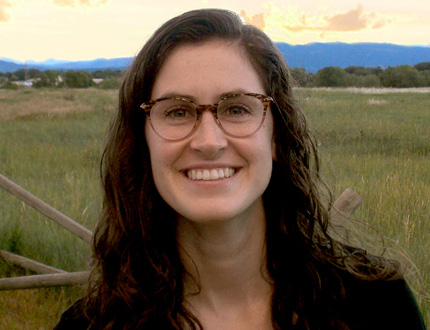
Corrina Marshall
NoCo Fireshed Collaborative Manager, The Ember Alliance
Corrina has made a significant impact on Colorado communities with her work ranging from prescribed fire and ecological restoration projects to community engagement with federal, state, non-profit, and private partners. Beginning her career at the Aldo Leopold Foundation in Wisconsin, she began learning about prescribed fire as a land management tool and wanted to continue exploring alongside the national fire community. Transitioning to the Forest Stewards Guild, she worked with the Intermountain West team to develop work plans, manage budgets, and foster collaboration with partners. Working closely with Fire Protection Districts and local communities, Corrina and her coworkers played a pivotal role in developing Community Wildfire Protection Plans (CWPPs) with a focus on engaging the community and learning from others in the fire community. Corrina’s passion for prescribed fire and ecological restoration, incredible team members, combined with her adeptness in community engagement allowed her to forge successful partnerships with various stakeholders.
Currently serving as the Northern Colorado Fireshed Collaborative Coordinator, situated as an employee of The Ember Alliance, Corrina continues her mission in wildfire mitigation and partner organization engagement. The Northern Colorado Fireshed Collaborative is a group made up of many organizations across the northern Colorado landscape – Federal, State, local, and NGO community-connected partner organizations. This collective group of partners are working locally and engaging with communities to promote resilient forests and watershed ecosystems, support fire-adapted communities, and protect highly valued resources and assets like drinking water quality and supply, wildlife habitat, recreation, life and safety, infrastructure, etc.
Reflecting on her previous roles, she’s most grateful to her teammates, past and present, who continuously inspire her to find creative solutions to complex problems. The Resilient Communities and Ecosystems Team offers a wide variety of services, Community Wildfire Protection Plans (CWPPs), wildfire risk assessments, forest management plans, fuel treatment plans, district capacity assessments, impacts assessments, and prescribed burn plans. This program of work has blossomed due to the incredible contributions of The Ember Alliance team. Learn more about CWPPs and The Ember Alliance’s work here.
Wildfire Resilience in Action
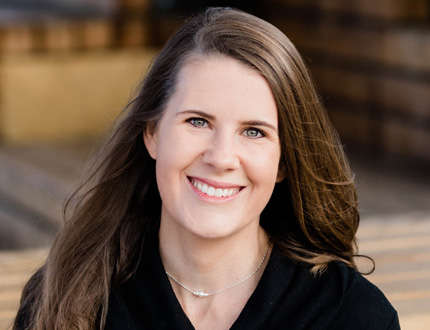
VP, Rocky Mountain Region,
Trout Unlimited
Chartered by Congress, the National Forest Foundation was created with a simple mission: bring people together to restore and enhance our National Forests and Grasslands. As Sr. Director of Conservation Programs at National Forest Foundation, Emily Olsen is responsible for leading and supporting their conservation activities across U.S. Forest Service Regions 1 (Northern), 2 (Rocky Mountain), 4 (Intermountain), 5 (Pacific Southwest), and 8 (Southern). In Colorado, Emily helps oversee their strategic plan as well as their current projects and campaigns, including Wood for Life (WFL) and many forest health and wildfire resilience projects across the state (with the Wilder-Highlands Mountain Pine Beetle Response Project being one example).
Wood for Life (WFL) is a program aimed at increasing forest resiliency while providing firewood to Indigenous communities. Small-diameter and low-value logs (perfect for firewood) are being removed to promoting wildfire resilience over time. Wood for Life is a partnership between the NFF, U.S. Forest Service, NGOs such as the Ancestral Lands Conservation Corps, and many Indigenous communities across the Four Corners region and Idaho.
The Wilder-Highlands Mountain Pine Beetle (MBP) Response Project is an urgent, holistic forest management project on the National Forest System and private lands in the Colorado Rockies. This project set new standards for shared stewardship and it is an example of how effective collaboration leads to amazing results. The mountain pine beetle is a native bark beetle that impacted nearly 3.4 million acres of forests in Colorado from 1996 to 2014. It can infest and kill all pine species found in Colorado. The Wilder-Highlands Project is a proactive effort to slow the spread of an outbreak of the MPB on dead, dying, and susceptible lodgepole pine stands located in the wildland-urban interface. With swift and effective action, the outbreak can be prevented from becoming a catastrophic disturbance to the forest ecosystem and the essential functions that it provides.
Learn more about the National Forest Foundation or Emily’s new venture with Trout Unlimited.
Catalyzing the community to keep Chaffee County special
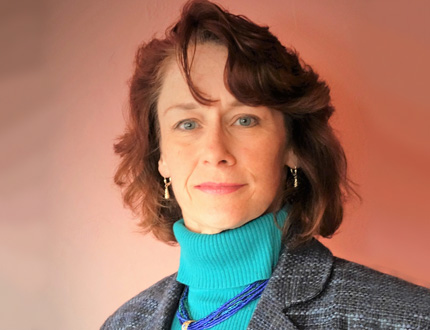
Co-lead of Envision,
Chaffee County
Cindy Williams, Co-lead of Envision, Chaffee County, currently facilitates and leads three community convener programs for Envision Chaffee County that address quality-of-life concerns identified by residents: the Next Generation Community Wildfire Protection Plan convened by Chaffee County government; the Keep Working Lands Working program that supports sustainable agriculture and rural landscapes; and Envision Recreation in Balance, a program that manages outdoor recreation growth impacts.
The Envision community planning initiative engaged more than 1,500 people and nearly 80 organizations to create a shared community vision that drives their work. In recent years 150-plus volunteers geotagged thousands of campfire rings, 14 miles of social trails and 100 football fields’ worth of impacted ground soil at 2,200+ dispersed campsites in Chaffee County. This monitoring data helps us take action by fixing problem areas and developing long-term solutions. Envision helps the community implement programs that address beautiful landscapes, clean water, recreation, friendly people, healthy forests and thriving wildlife.
